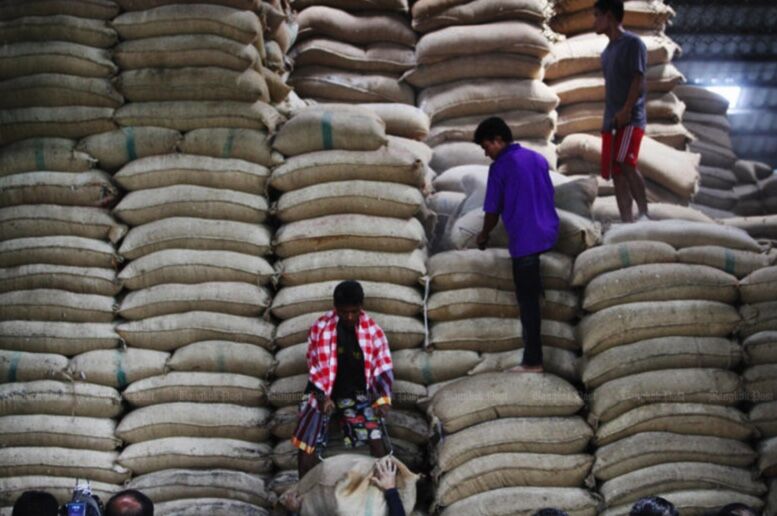Thai rice exports valued at 23% more than same period last year

From January to April, Thailand’s rice exports reached 2.79 million tonnes, with an estimated total for the year surpassing 8 million tonnes, according to the government. Prime Minister Prayut Chan-o-cha, expressed optimism regarding the exports being valued at US$1.5 billion (51.2 billion baht) revenue, a 23% increase compared to the same period last year, as reported by government spokesperson Anucha Burapachaisri.
Prayut has directed state agencies to actively work on enhancing rice exports and increasing crop production while maintaining high rice prices in overseas markets. Anucha added that Thai rice exports are expected to continue rising due to increasing demand in numerous countries. Thailand currently holds the position of the world’s second-largest rice exporter, following India.
The stable baht in April contributed to the increase in rice prices, keeping the commodity competitive in foreign markets. Consequently, the prices of most rice types have surpassed the government’s price guarantee. The Ministry of Agriculture and Cooperatives now anticipates that rice exports will exceed the annual target.
The Department of Internal Trade (DIT) predicts that exports will reach 8 million tonnes, an increase from 7.69 million tonnes in 2022, Bangkok Post reports. As of May 10, rice exports amounted to 3.05 million tonnes, with orders for Thai rice from abroad continuing to rise, as stated by Anucha Burapachaisri.
Thailand’s primary rice markets include Iraq, Indonesia, the US, South Africa, Senegal, Bangladesh, China, Japan, Cameroon, and Mozambique, with white rice being the most exported variety, followed by jasmine rice.
Anucha mentioned that the prime minister expressed gratitude to state agencies and the private sector for their efforts in marketing and enhancing the quality of rice for export to meet demand. However, Prayut Chan-o-cha warned against fraudulent exports that could tarnish the international reputation of Thai rice.
Udom Srisomsong, deputy director-general of the DIT, stated that the robust global demand for Thai rice has sustained competitive prices, negating the need for government intervention through price guarantee measures to support farmers.
The Thai Rice Exporters Association, on the other hand, expressed concern over the lack of clarity in crop price measures from the Move Forward Party or Pheu Thai, the two main parties forming the new government. Charoen Laothamthat, the association president, emphasised that a change in government should not hinder or abruptly alter policies that impact the development of essential crops. There are concerns that Thailand may lose its competitiveness in rice exports to Vietnam.
Latest Thailand News
Follow The Thaiger on Google News:


























